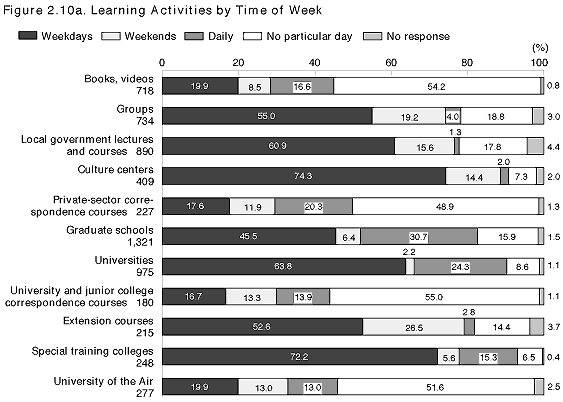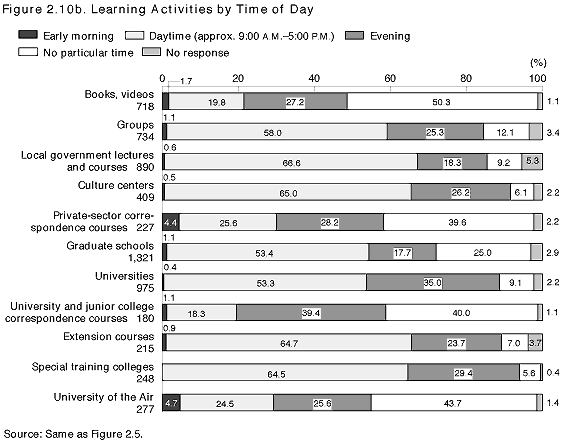| Home > Policy > White Paper, Notice, Announcement > White Paper > JAPANESE GOVERNMENT POLICIES IN EDUCATION, SCIENCE, SPORTS AND CULTURE 1996 > Priorities and Prospects for a Lifelong Learning Society Chapter 2 Section 1 4 | ||
With the exception of methods that allow flexibility with regard to times and days, such as learning through books, videos, and correspondence courses, the results of the 1996 MESSC survey show that structured, ongoing learning activities generally take place during the day (9:00 a.m.-5:00 p.m.) on weekdays ( Figure 2.10 ).
The same is true of lectures and courses run by local governments and extension courses offered by universities, junior colleges, and colleges of technology. These results indicate that even extension courses, which are the most basic method of providing learning opportunities to the general public, are generally provided during the day on weekdays.


| Back to Top | MEXT HOME |